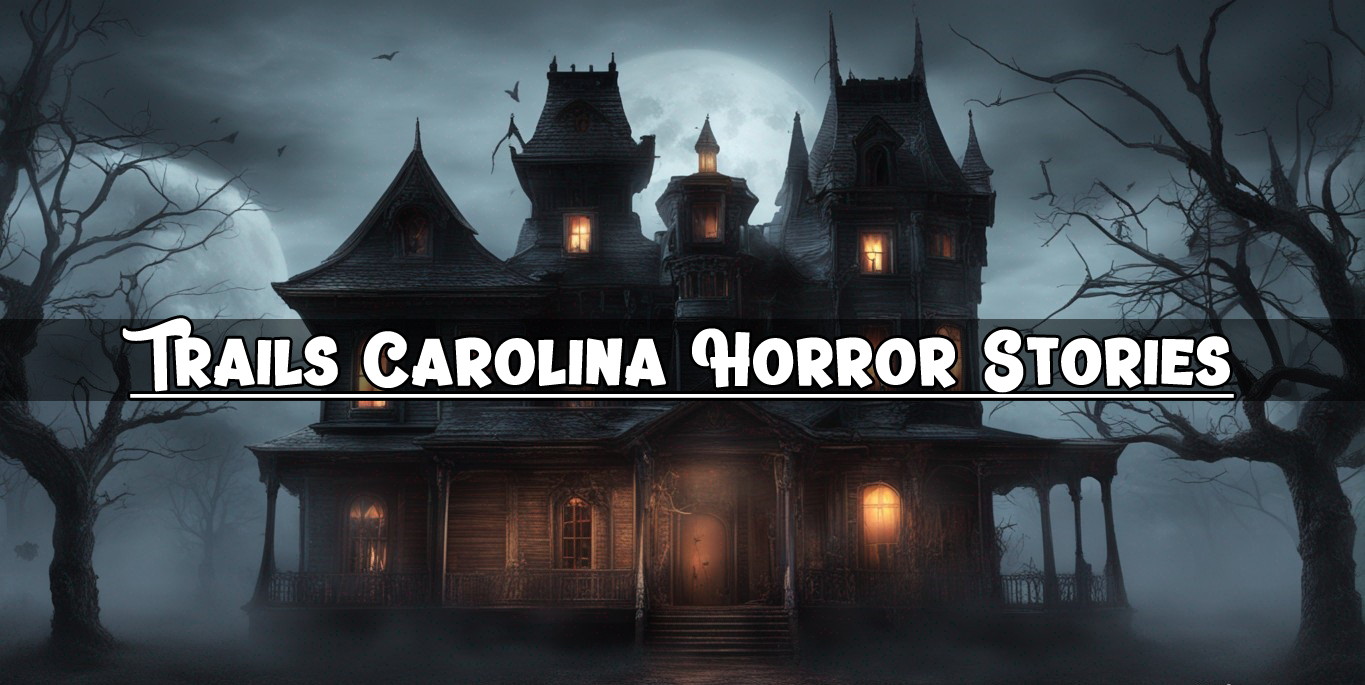Trails Carolina, once heralded as a beacon of hope for troubled youth seeking healing in the embrace of nature, now finds itself shrouded in unsettling tales that cast a long shadow over wilderness therapy programs as a whole. While these programs are intended to foster personal growth and recovery, not all stories that emerge from them paint a positive picture. In the case of Trails Carolina, there are allegations and unsettling accounts that demand our attention.
One brave individual, Linda, took a courageous step in 2022 by breaking her silence. She shared her deeply troubling story through a heartfelt blog post and a candid interview with USA Today. Linda’s determination was clear: she wanted to shine a light on the hidden and disturbing darker side of Trails Carolina.
This narrative surrounding Trails Carolina underscores the complexity and potential pitfalls within wilderness therapy programs, urging us to scrutinize them more closely and ensure the well-being of those entrusted to their care.
Trails Carolina Horror Stories And Allegations
The unsettling tales surrounding Trails Carolina came to light when Linda, a former staff member, courageously decided to blow the whistle on the rampant malpractice within the wilderness therapy camp. Linda had dedicated two years of her life as a counselor at Trails Carolina, from 2015 to 2017, and what she disclosed was nothing short of shocking.
In her revelations, Linda exposed distressing allegations of abuse, encompassing sexual, physical, and emotional mistreatment, as well as instances of neglect perpetrated by certain staff members. What made matters even more troubling was Linda’s assertion that her efforts to report these incidents to the camp’s management were met with apathy and dismissal.
Trails Carolina Investigations
The North Carolina Department of Health and Human Services (NCDHHS) lost no time in beginning a thorough inquiry after these alarming disclosures. Numerous regulatory agencies and independent investigators have begun to show a great interest in the claims against Trails Carolina as they grow in quantity. Their investigations are centered on several crucial goals:
- These investigations aim to do two key things: first, to validate the allegations made by individuals like Linda, and second, to gather concrete evidence of any wrongdoing within the Trails Carolina wilderness therapy program.
- Above all else, these investigations are driven by a fundamental concern: ensuring the safety and well-being of every individual who has been a part of Trails Carolina, both in the past and present.
- Another critical aim of these investigations is to hold the Trails Carolina program accountable for any violations of legal or ethical standards that may have occurred.
- Furthermore, these investigations also have the important goal of making recommendations for any essential changes or improvements that should be implemented within the program.
As the investigations continue their work, some initial findings are starting to emerge. For instance, one inquiry has exposed that Trails Carolina failed to report a significant number of abuse and neglect incidents to the authorities, which is a legal requirement. Another investigation has shed light on several violations of health and safety regulations within the program, including issues with sanitation, hygiene, and the maintenance of medical care standards.
Trails Carolina Responds
In response to Linda’s revelations, Trails Carolina and its supporters have vehemently reacted, leveling accusations of dishonesty, exaggeration, and attention-seeking:
“Linda’s assertions are completely without validity and without any basis in reality. It’s important to keep in mind that she has a history of dealing with personal issues and mental health issues, which may have had an affect on her judgement. We are certain that she has never experienced abuse or maltreatment while working at Trails Carolina. Instead, she appears to be a disgruntled former employee with a motive to tarnish our reputation and our program,” stated Science Steve, the director of science at Trails Carolina.
In their declaration, Trails Carolina underscores the profound and constructive impact their wilderness therapy program has exerted upon myriad adolescents. They accentuate their unwavering commitment to evidence-based methodologies and their steadfast dedication to upholding the loftiest benchmarks within the industry. Furthermore, they emphasize the paramount significance of cherishing input from both participants and their familial supporters, all in the relentless pursuit of dispensing the utmost caliber of care.
Amanda, a counselor at Trails Carolina, echoes this sentiment with her deeply personal encounter: “Trails Carolina metamorphosed my existence. I grappled with the throes of despondency, anxiety, and self-inflicted harm, and I perceived felicity as an elusive dream. However, at Trails Carolina, I unearthed optimism, convalescence, and a revitalized sense of purpose.”
Trails Carolina Horror Stories: Employment Practices
The allegations against Trails Carolina have triggered a series of important questions regarding their employment policies. Are their staff members sufficiently trained and qualified to handle the complex challenges that arise in their program? Do they meet the industry standards for staff-to-participant ratios? And, crucially, are their staff members adequately screened for criminal backgrounds and substance abuse issues?
While Trails Carolina emphasizes the breadth of their staff training, covering critical areas like first aid, nutrition, suicide prevention, and crisis de-escalation, former staff members have shared disconcerting experiences. One of them, in particular, revealed that they received minimal training before being thrust into working with clients in the wilderness. This revelation raises valid concerns about the sufficiency and consistency of staff preparation at Trails Carolina.
According to one former employee, “I was given little training before working with wilderness clients. I had to learn everything quickly, which was difficult and overwhelming. I faced management and client pressure and high expectations.”
Another former staff member has come forward, shedding light on a troubling aspect of their experience at Trails Carolina. This person said that throughout their employment, they had seen several instances of worker wrongdoing. These incidents included employees taking drugs, consuming alcohol while on the job, and having improper connections with customers.
“I witnessed several instances of staff misconduct, such as drinking alcohol on duty, using drugs, or engaging in inappropriate relationships with clients,” said one former employee. I informed the management of these instances, but tragically, they were either disregarded or overlooked. This left me feeling profoundly unsafe and uncomfortable during my time working at Trails Carolina.”
These testimonies serve as significant indicators that Trails Carolina may have fallen short in ensuring that its staff members maintain the competence, professionalism, and ethical standards necessary for the proper care and well-being of their clients, lending further weight to the allegations of abuse.
What Is Wilderness Therapy?
Amidst the ongoing controversy surrounding Trails Carolina, it’s essential to acknowledge that when executed correctly, wilderness therapy can be an immensely valuable intervention for adolescents facing challenges. Scientific research has uncovered compelling evidence that well-designed wilderness therapy programs can bring about positive outcomes in terms of participants’ psychological well-being, family relationships, and academic achievements.
This approach falls under the category of experiential therapy, harnessing the healing power of nature as its therapeutic backdrop. Wilderness therapy provides a unique and transformative opportunity for participants to:
- Cut yourself apart from the stresses and diversions of contemporary life.
- Encourage a relationship with nature and one’s inner self.
- acquire new abilities and overcome obstacles.
- Develop your independence and self-assurance.
- Get assistance and direction from qualified specialists.
- Gain understanding of their problems and behaviours.
- Plan for the future and implement constructive reforms.
The triumph of wilderness therapy relies on a multitude of variables, and it is far from being a one-size-fits-all remedy with immediate outcomes. It necessitates meticulous contemplation of numerous components, including the caliber of the program, the appropriateness of the participants, and the extent of familial engagement.
What is imperative to grasp is that wilderness therapy constitutes an odyssey that necessitates prudent evaluation, methodical strategizing, and exhaustive subsequent monitoring. These stages are imperative to ensure that the approach harmonizes seamlessly with the idiosyncratic requisites and ambitions of each individual entailed.
Conclusion: Are The Trails Carolina Horror Stories True?
The troubled teen industry has witnessed a surge in therapy camps, but sadly, not all of them are genuinely dedicated to improving the lives of those they serve. The Trails Carolina horror stories have given rise to a host of challenges, including a lawsuit from a former resident alleging staff sexual abuse, an ongoing investigation by the North Carolina Department of Health and Human Services (NCDHHS) triggered by numerous allegations, and a growing sense of unease.
While the Trails Carolina abuse claims remain unconfirmed, they have brought to light a darker side that can exist within certain wilderness therapy programs. It becomes more and more important than ever for everyone engaged in this inquiry to put the participants’ welfare first as the case develops. We can only expect to restore faith in these kinds of programmes by being open, accountable, and dedicated to progress.
Facts:
- Trails Carolina was once considered a promising wilderness therapy program for troubled youth seeking healing in nature.
- Linda, a former staff member, exposed allegations of sexual, physical, and emotional abuse, as well as neglect within Trails Carolina.
- Investigations by regulatory agencies and independent bodies are ongoing to validate these allegations.
- Initial findings indicate that Trails Carolina failed to report abuse and neglect incidents to authorities as required by law.
- Allegations have raised questions about Trails Carolina’s staff training, qualifications, and employment practices.
- Some former staff members have reported minimal training and instances of worker misconduct.
- Wilderness therapy, when properly executed, can have positive outcomes for adolescents facing challenges.
- Wilderness therapy is an experiential therapy approach that uses nature as a therapeutic backdrop.
- The success of wilderness therapy depends on various factors, including program quality and participant engagement.
- Ensuring the well-being of participants in wilderness therapy programs is crucial, and transparency is essential to restore trust in these programs.
FAQs:
Are the allegations against Trails Carolina confirmed?
The allegations are currently under investigation by various regulatory agencies and independent bodies. No definitive conclusions have been reached yet.
What kinds of abuse were alleged at Trails Carolina?
Allegations include sexual, physical, and emotional abuse, as well as instances of neglect by certain staff members.
What actions have regulatory agencies taken in response to the allegations?
The North Carolina Department of Health and Human Services (NCDHHS) initiated a thorough inquiry into the allegations. Multiple investigations are ongoing.
Are there concerns about Trails Carolina’s staff training and qualifications?
Yes, former staff members have raised concerns about minimal training and the lack of preparation before working with clients in the wilderness.
Is wilderness therapy effective when done correctly?
Yes, scientific research has shown that well-designed wilderness therapy programs can have positive outcomes for participants’ psychological well-being, family relationships, and academic achievements.
How can individuals ensure the safety of participants in wilderness therapy programs?
Prudent evaluation, methodical strategizing, and exhaustive monitoring are crucial to ensure that the program aligns with the unique needs and goals of each participant.
What is the goal of the ongoing investigations into Trails Carolina?
The investigations aim to validate allegations, gather evidence of wrongdoing, hold the program accountable for any violations, and recommend necessary changes or improvements.
Has Trails Carolina responded to the allegations?
Trails Carolina has vehemently denied the allegations, citing a commitment to evidence-based methodologies and a dedication to upholding industry standards.
What impact have the Trails Carolina horror stories had on the troubled teen industry?
The allegations have raised concerns about the practices of some wilderness therapy programs and emphasized the importance of prioritizing participants’ welfare.
What is the potential long-term effect of the controversy surrounding Trails Carolina?
It is essential for the industry to be open, accountable, and dedicated to progress to restore trust in wilderness therapy programs and ensure the well-being of participants.













